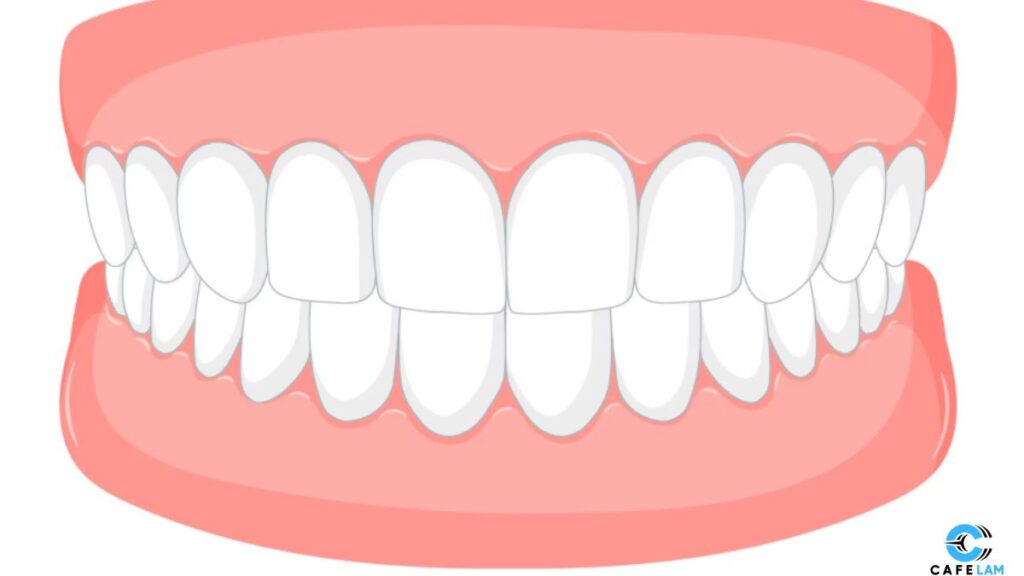Healthy gums are the foundation of a beautiful smile and good overall oral health. Neglecting gum care can lead to gingivitis, periodontitis, and ultimately, tooth loss. While professional dental cleanings are vital, incorporating simple home remedies into your daily routine can significantly improve gum health.
This article explores the most effective home remedies for maintaining healthy gums, rooted in tradition and supported by modern insights. Read on.
Understanding Gum Health
Before diving into remedies, it’s essential to understand what healthy gums look like. Healthy gums should be firm and pink, not red, white, or swollen. They should not bleed during brushing or flossing. Unhealthy gums often show signs such as swelling, redness, bleeding, receding gum lines, and persistent bad breath.
If you’re experiencing any severe symptoms, you should consult a dentist. However, if you are looking to maintain gum health or reverse mild irritation, the following home remedies can be very effective.
Salt Water Rinse
Salt acts as a natural antibacterial and anti-inflammatory agent. A simple saline solution can soothe inflamed gums, reduce harmful bacteria, and promote healing. To use this remedy, dissolve half to one teaspoon of salt in a glass of warm water.
Rinse your mouth with this solution for about 30 seconds, then spit it out. Repeating this process twice daily can yield noticeable benefits. However, using it more than three times a day can lead to oral tissue dryness, so moderation is key.
Oil Pulling
Originating from Ayurvedic medicine, oil pulling helps eliminate toxins from the mouth and reduce plaque buildup that can irritate the gums. Common oils used for this practice include coconut oil, sesame oil, and sunflower oil. To try oil pulling, take one tablespoon of oil and swish it around in your mouth for 15 to 20 minutes.
Then spit it into the trash to avoid clogging your pipes, rinse your mouth with warm water, and brush your teeth. This practice is most effective when done daily in the morning on an empty stomach.
Aloe Vera Gel
Aloe vera possesses strong anti-inflammatory and antimicrobial properties. It can reduce gum swelling and fight bacteria that contribute to gum disease. You can put pure aloe vera gel directly on your gums, massage it gently, and leave it on for a few minutes before rinsing with water.
Repeating this twice daily can improve gum health. Make sure to use food-grade or oral-care-safe aloe vera gel.
Hydrogen Peroxide Rinse
Hydrogen peroxide is a mild antiseptic that can kill bacteria, whiten teeth, and reduce plaque buildup. To use it as a rinse, mix equal parts of water and 3% hydrogen peroxide. Swish the mixture in your mouth for about 30 seconds, then spit it out and rinse with plain water.
This method should be used two to three times a week for best results. Do not swallow the solution, and avoid overuse, which may irritate.
Green Tea
Green tea is rich in catechins, powerful antioxidants with anti-inflammatory and antibacterial properties. These compounds can help lower the risk of periodontal disease.
Drinking one to two cups of green tea daily can be beneficial. Additionally, cooled green tea can be used as a mouth rinse to help soothe and protect your gums.
Tea Tree Oil
Tea tree oil has antimicrobial and anti-inflammatory effects, which can help reduce gum inflammation and fight off harmful bacteria. To use tea tree oil, mix a few drops in a cup of water and use the solution as a mouth rinse once daily.
Alternatively, you can opt for a toothpaste that contains tea tree oil. Always dilute tea tree oil before use, and avoid swallowing it.
Turmeric Paste
Turmeric contains curcumin, a natural compound known for its anti-inflammatory and antioxidant properties. It can help reduce swelling and fight infections in the gums. To create a turmeric paste, mix one teaspoon of turmeric powder with water or coconut oil until it forms a paste.
Apply this paste to your gums, leave it on for about 10 minutes, and then rinse with water. This can be done a few times a week for best results.
Clove Oil
Clove oil has been used for centuries to relieve dental pain and gum irritation due to its analgesic and antibacterial properties. To use clove oil, dab a cotton swab in the oil and apply it directly to the affected gums. Leave it for a few minutes before rinsing.
For a gentler application, mix clove oil with a carrier oil like coconut oil. Use it sparingly to avoid irritation, and be sure not to swallow it.
Proper Brushing and Flossing
While this may not sound like a home remedy, proper brushing and flossing are fundamental to maintaining gum health. Brushing twice daily with a soft-bristle toothbrush and fluoride toothpaste helps remove plaque and food particles. You should replace your toothbrush every three to four months.
Flossing daily helps clean areas between teeth that a brush can’t reach. Using an electric toothbrush may further enhance your cleaning routine.
Vitamin C-Rich Foods
Vitamin C plays a vital role in boosting immunity and promoting tissue repair. A deficiency in this vitamin can lead to bleeding gums and an increased risk of gum disease. Foods rich in vitamin C include oranges, strawberries, kiwis, red bell peppers, kale, and spinach.
Including these foods in your daily diet can support gum health. If necessary, vitamin C supplements can also be considered.
Baking Soda Paste
Baking soda helps neutralize acids in the mouth, reduce inflammation, and gently scrub away plaque due to its mild abrasive qualities. To use it, mix a teaspoon of baking soda with a small amount of water to form a paste.
Brush your gums gently with the paste, then rinse thoroughly. This remedy can be used two to three times a week.
Cranberry Juice
Cranberry juice contains compounds that prevent bacteria from adhering to teeth and gums, thereby reducing plaque formation and the risk of gum infections. Drinking unsweetened cranberry juice in moderation can be beneficial. It’s important to avoid sugary versions of cranberry juice, as they can contribute to tooth decay.
Guava Leaf Mouthwash
Guava leaves possess anti-inflammatory and antimicrobial properties, making them effective for relieving gum pain and promoting healing. To create a guava leaf mouthwash, boil a handful of fresh guava leaves in water and let the mixture cool.
Use the resulting liquid as a mouth rinse twice daily. Guava leaf extract is also available in capsule and liquid forms for convenience.
Stay Hydrated
Proper hydration supports saliva production, which plays a crucial role in maintaining oral hygiene. Saliva helps neutralize acids and wash away food particles and bacteria.
Drinking at least eight glasses of water per day helps maintain adequate hydration. Limiting dehydrating beverages like coffee and alcohol also contributes to better oral health.
Avoid Tobacco and Limit Sugar
Tobacco use severely damages gum tissue and increases the risk of gum disease. Excessive sugar consumption feeds harmful bacteria in the mouth, leading to plaque formation and inflammation. By avoiding tobacco and limiting your intake of sugary foods and drinks, you can protect and improve your gum health significantly.
Massage Your Gums
Gently massaging your gums improves blood circulation and stimulates tissue healing. This practice can be done using your clean fingertips or a soft rubber-tipped gum stimulator available at most pharmacies.
Apply light pressure and make small circular motions along the gum line. Doing this once a day, especially after brushing, can promote gum resilience and reduce inflammation over time.
Use a Humidifier at Night
Dry air, especially in heated or air-conditioned environments, can lead to dry mouth, which reduces saliva production and contributes to bacterial growth. Using a humidifier while you sleep helps keep your mouth and throat moist, which supports natural oral cleansing and keeps your gums healthier. This is especially helpful for individuals who breathe through their mouth at night or suffer from sinus issues.
Chew Sugar-Free Gum
Chewing sugar-free gum is a simple yet effective way to stimulate saliva production, which helps wash away food particles and neutralize acids in the mouth. Increased saliva flow also supports the natural remineralization process of the teeth and helps maintain a balanced oral environment, which benefits gum health.
Choose gum that contains xylitol, a natural sweetener known to inhibit the growth of harmful bacteria. Chewing sugar-free gum after meals can be particularly helpful in reducing plaque buildup and freshening breath without contributing to tooth decay.
When to See a Dentist
While these home remedies are effective for maintaining healthy gums and treating mild symptoms, it is important to recognize when professional care is necessary. You should consult a dentist if you experience persistent gum bleeding, severe swelling or pain, pus between teeth and gums, loose teeth, or chronic bad breath.
Early dental intervention can prevent more serious complications and help preserve your natural teeth. Most importantly, they can provide a guide on how to properly care for your gums and teeth.
Start Using These Tips Today
Maintaining healthy gums doesn’t always require expensive treatments or medications. Many natural and affordable home remedies can effectively support your daily oral care routine. From saltwater rinses and turmeric paste to proper hydration and vitamin-rich diets, these remedies can help reduce inflammation, eliminate bacteria, and promote healing.
Taking care of your gums is an investment in your long-term oral and general health. By incorporating these remedies into your daily routine, you can enjoy healthier gums, fresher breath, and a more confident smile.







